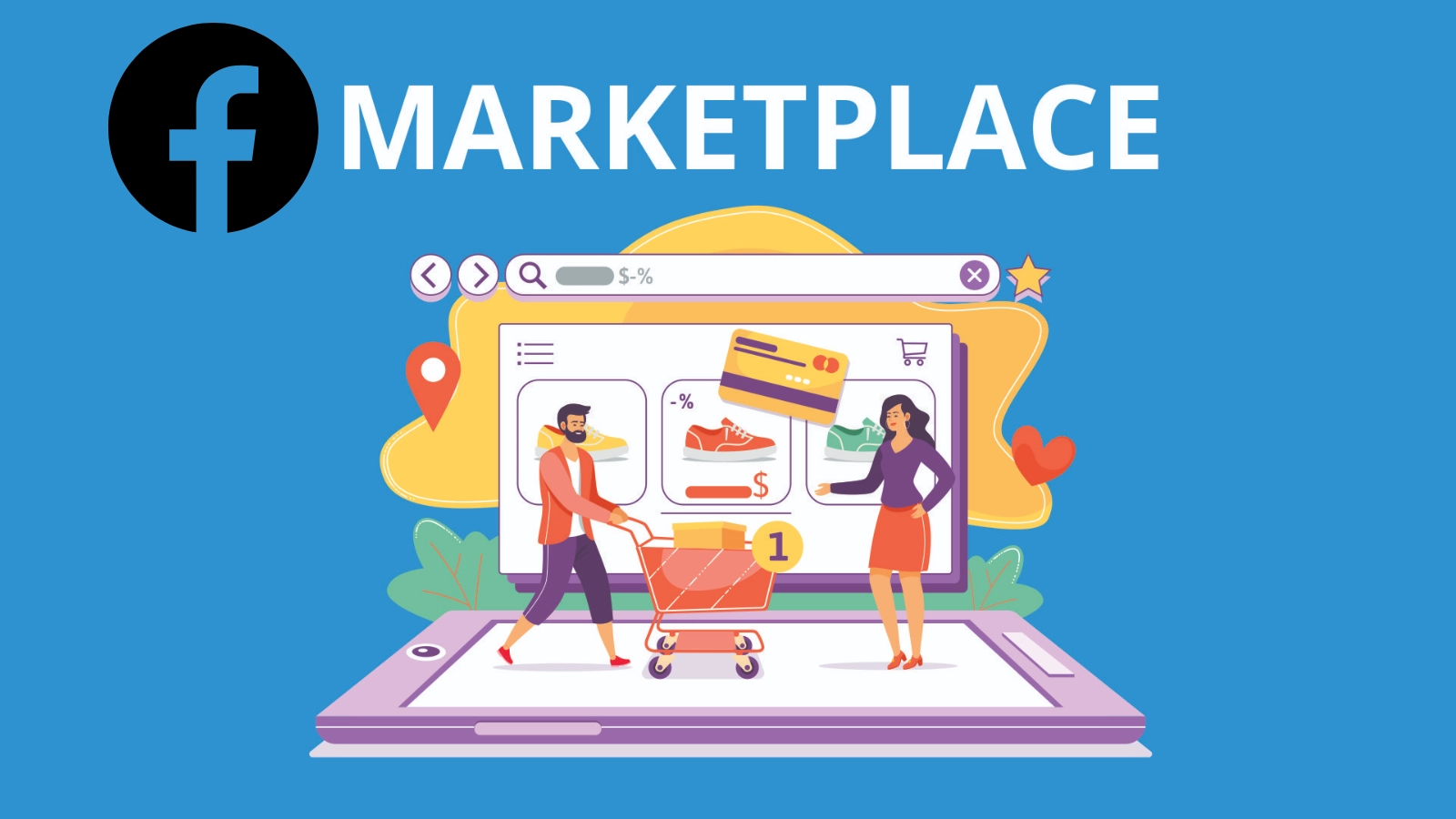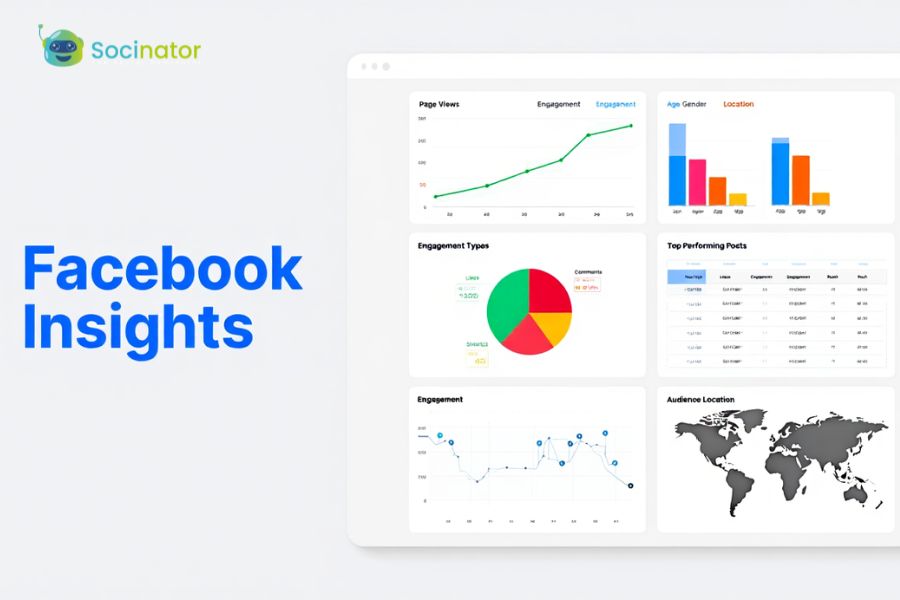In the past decade, Facebook Marketplace has emerged as a go-to platform for buying and selling goods locally. Its seamless integration with the social media trends and giant’s ecosystem made it convenient for millions worldwide. However, as users have become more discerning about privacy, security, and user experience, Facebook Marketplace alternative have become increasingly relevant.
This blog embarks on a journey beyond the confines of Facebook’s digital marketplace to uncover alternative platforms that offer similar, if not superior, experiences for buyers and sellers alike. If you seek a better interface, enhanced security, or better category options, many alternatives are available for exploration.
From dedicated online marketplaces to niche platforms tailored for specific goods and services, the landscape of e-commerce continues to evolve, providing consumers and entrepreneurs with plenty of options. In this blog, we have discovered new avenues for Facebook marketplace alternative connecting buyers with sellers in a digital landscape.
In a hurry? Listen to the blog instead!
What Is Facebook Marketplace?
Facebook Marketplace is an online platform created by Facebook that allows users to buy, sell, and trade items with people in their local communities. It provides a convenient way for users to discover, browse, and list products or services they want to buy or sell.
Facebook Marketplace is integrated into the Facebook app and website, making it easily accessible to Facebook users worldwide. It encompasses various categories such as clothing, electronics, furniture, vehicles, and more.
Users can communicate with potential buyers or sellers through Facebook Messenger, negotiate prices, arrange meetings, and complete transactions locally. The platform has become approved for its simplicity, ease of use, and the ability to connect with people nearby for buying and selling items.
Why You Should Consider Facebook Marketplace Alternative?
 Expanding where you sell, commonly known as multi-channel selling, is not merely a savvy sales strategy. It is becoming essential in today’s fiercely competitive online selling landscape.
Expanding where you sell, commonly known as multi-channel selling, is not merely a savvy sales strategy. It is becoming essential in today’s fiercely competitive online selling landscape.
The rise of online marketplaces has created numerous opportunities for sellers. Yet, to fully leverage this potential, it is crucial to recognize the benefits of extending across platforms. Multi-channel selling enables you to tailor your approach to suit these diverse audience segments.
Revenue Stream Diversification
Relying solely on a single platform entails significant risk. Fluctuations in algorithms, fee structures, or unexpected service disruptions can significantly impact your sales. Embracing diversification mitigates this risk by avoiding over-reliance on any single channel, thereby fostering a more resilient income stream.
Amplified Brand Exposure
Establishing a presence across multiple platforms exposes your brand to a wider audience. It only augments sales opportunities and fortifies brand recognition.
Targeting Varied Audience Segments
Distinct facebook marketplace alternative attract different demographics. For example, Etsy may draw enthusiasts of handmade and unique items, while eBay appeals to collectors and bargain hunters. Employing a multi-channel selling approach enables tailoring strategies to resonate with these diverse audience segments.
Competitive Edge
Multi-channel sellers often outperform those confined to a single platform. By comprehending the intricacies of each marketplace, sellers can optimize pricing, promotions, and product offerings based on platform-specific dynamics, gaining a competitive advantage.
Expanding Sales Opportunities
By extending your presence across various platforms, you broaden your reach. Each marketplace harbors its distinct user base. Hence, venturing into multiple channels ensures access to a diverse audience, consequently elevating the likelihood of securing sales.
Many businesses have started using social media automation tools like Socinator to streamline their social media. Let’s explore this amazing tool.
Socinator
 Socinator is a robust social media marketing automation tool. It enables users to maintain their presence across diverse social media platforms. With plenty of features designed to streamline marketing efforts, Socinator has become a go-to solution for businesses, marketers, and influencers.
Socinator is a robust social media marketing automation tool. It enables users to maintain their presence across diverse social media platforms. With plenty of features designed to streamline marketing efforts, Socinator has become a go-to solution for businesses, marketers, and influencers.
Core features of Socinator include:
Multi-Platform Support
Socinator supports major social media platforms like Facebook, Instagram, Twitter, LinkedIn, Pinterest, YouTube, Reddit, and Quora, enabling users to manage all their accounts from a single dashboard.
Scheduling and Automation
Users can schedule posts, stories, tweets, and pins in advance, allowing for consistent and timely content delivery. Automation features enable tasks. For example, liking, commenting, following, and messaging, saving valuable time and effort.
Audience Engagement
Socinator facilitates engagement with followers. Socinator helps in Facebook marketplace alternative audience engagement through features like auto-reply to comments and messages, helping businesses and influencers build stronger connections with their audience.
Analytics and Reporting
The platform provides detailed analytics and reporting tools to track performance metrics such as engagement, reach, and follower growth. This data enables users to manage profiles, optimize strategies, and make informed decisions to enhance their social media presence.
Automate Friend Requests with Ease
Simplify your growth and reach by automating connection requests. You can send, accept, or cancel them just with an effortless configuration that allows you to identify your target audience.
Whether you’re a small business, a digital agency, or a social media influencer, Socinator is a valuable tool for achieving your social media marketing goals.
Facebook Marketplace Alternative: What Is Important to Understand
Facebook Marketplace provides a convenient avenue to connect with potential buyers or sellers, capitalizing on the strength of your current Facebook account. However, it’s crucial to recognize that numerous alternatives exist, offering comparable features and advantages without the inconveniences associated with Facebook Marketplace. Let’s explore the options available with a marketplace alternative.
Option 1 – Expanding Your Reach through Online Marketplaces
While Facebook Marketplace focuses on leveraging your social network connections, online marketplaces offer a broader reach. These platforms function as vendor marketplaces, enabling individuals or businesses to establish their online stores within the marketplace ecosystem.
Integrating a Facebook automation tool will streamline the process. It will handle managing your connections automatically and reduce manual efforts.
Option 2 – Localized Buying and Selling via Classifieds Websites
If you prefer localized buying and selling experiences without social media networks then Facebook marketplace alternative are a good solution for your problem. Several classified websites offer a viable alternative to Facebook Marketplace. These platforms connect buyers and sellers within specific regions or cities, facilitating easy access to local items.
Option 3 – Establishing Your Online Store with E-commerce Platforms
For individuals or businesses aiming to create their online store instead of relying on existing marketplaces, e-commerce platforms provide an ideal solution. These platforms furnish tools and features to craft a personalized online store aligned with your brand.
Popular e-commerce platforms like Shopify or CS-Cart facilitate the easy setup of your online store. They offer customizable templates, secure Facebook payment gateways, inventory management systems, and marketing tools. With Facebook market alternatives, you retain proper control over branding, pricing strategy, and customer experience.
Read More
Everything You Need To Know About Facebook Pay
5 Social Media Trends Expected To Make Waves
What Is Content Localization And How To Make The Most Of It?
5 Ultimate Facebook Marketplace Alternative
 Following are the five similar to Facebook marketplace alternates:
Following are the five similar to Facebook marketplace alternates:
Poshmark
Poshmark started in 2011. It’s a mix of shopping and social media. It’s the first “social commerce” platform. You can easily use it on your phone to shop, sell, and talk with others. Poshmark is not just about buying and selling. It’s also about building a fashion community.
The app shows the best-selling brands every week. It helps sellers know what buyers want. The app started with women’s fashion. But now, it also includes men’s fashion, kids’ clothes, and home decor. People who love fashion and care about the Facebook marketplace alternative environment should use Poshmark. They want to give clothes a second life and reduce waste.
Pros:
- People interact a lot, so it’s trustworthy.
- The app checks luxury items to make sure they’re real.
- It promotes sustainable shopping by selling used items.
Cons:
- Many sellers mean more competition.
- Sellers pay 20% of their sales, which can reduce profits.
Bottom line:
Poshmark feels like a social place to sell things. But as more people join, it’s hard for new sellers.
Mercari
Mercari started in Japan in 2013. It’s now global. It calls itself “The Selling App.” Mercari is easy to use. You can buy and sell without any hassle. It has many categories for different things. It’s better for selling unique or everyday items. But many sellers mean more competition.
Pros:
- Mercari- The Facebook marketplace alternative is easy for everyone to use.
- Sellers pay a 2.9% fee plus $0.50 per sale.
- Sellers can sell almost anything.
Cons:
- Many sellers mean more competition.
- Some sellers say Mercari encourages returns too much.
Bottom line:
Mercari is easy for anyone who wants to sell things. Sellers have many options for what they can sell. But it’s hard to stand out because many people sell similar things.
Etsy
Etsy started in 2005. It’s for people who make things by hand or love old items. You can find all kinds of unique items on Etsy. You can find things like Christmas decorations, mugs, and shirts. Etsy is all about handmade, custom items and old things. People who shop on Etsy want special gifts and unique home decor.
Pros:
- Buyers on Etsy like handmade things and are willing to pay for them.
- Sellers can sell to people all over the world through Facebook marketplace alternative.
- Sellers can make things just for you.
Cons:
- Etsy charges fees. It is hard to understand.
- Many sellers mean it’s hard to stand out.
Bottom line:
People on Etsy want special items. Sellers need to know about fees to make money. It is tough to get noticed by many sellers.
eBay
eBay started in 1995. It’s a big online marketplace. You can buy things through auctions or buy them right away. eBay has many categories for different things. It’s better for selling rare items or things people collect. But many listings mean more competition.
Pros:
- Auctions can make items sell for more.
- eBay checks for fraud and scams.
- Sellers can sell to people all over the world.
Cons:
- eBay has many fees that sellers need to understand.
- With many listings, your item can get lost.
Bottom line:
eBay, a Facebook marketplace alternative, is better for selling rare things. It’s safe for sellers. But many fees and many sellers can make it hard to sell things.
Vinted
Vinted started in Lithuania. It’s about second-hand fashion. It’s easy to use and helps people find eco-friendly clothes. Vinted exclusively offers used clothing, footwear, and accessories for sale. It is better for people who care about the environment.
Pros:
- Sellers get all the money from their sales.
- Vinted helps reduce waste.
- There’s a feature where people can swap clothes.
Cons:
- Sellers have less control over shipping.
- Vinted only sells fashion items, so it’s not for everyone.
Bottom line:
Vinted is for people who want to sell or buy second-hand clothes. It’s good for the environment. But sellers have less control over shipping, and it’s only for fashion items.
Wrapping Up
In conclusion, exploring Facebook Marketplace alternative opens up plenty of possibilities for buyers and sellers. Whether you’re seeking a broader reach, localized experiences, or specialized niches, platforms are catering to diverse needs. However, managing multiple platforms can be daunting without the right tools.
In such a scenario, leverage Socinator, a powerful management and automation tool designed to streamline social media marketing efforts across various platforms, including Facebook alternatives.
With Socinator, you can efficiently schedule posts, engage with your audience, and track performance metrics, ensuring a seamless experience across multiple channels. Embrace the diversity of online marketplaces.






